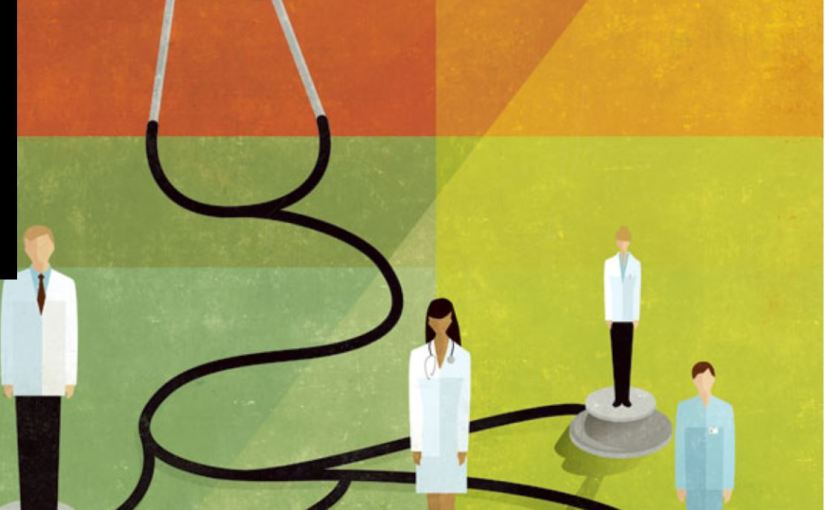A new initiative at my alma mater, Johns Hopkins, is breaking ground with a ancient approach; it’s called listening to the patient! The essence of healing from a Christian point of view is compassion. Compassion depends on trusting relationships. Relationships are built on person-to-person interaction in a caring environment. The best care involves listening well to patients!
I will never forget one of my mentors, Dr. Phil Tumulty, who was a master clinician and diagnostician at Hopkins. He (and many others) stressed that the goal was not just caring for the disease but the patient. I have been privileged to have learned from teachers who put whole-person medicine in practice. Yet when the number of patients and the severity of illness becomes overwhelming — as it often does serving abroad in limited resource settings — how do we keep a whole person approach? How do we keep love-in-action in practice not just in theory?
One innovation is coming again from Johns Hopkins. This article describes the Aliki Initiative, which trains young doctors in the old practice of getting to know patients as people. During Aliki rotations, residents are trained to write notes that begin with social histories, not just symptoms, and also to make structured follow up calls to primary providers and even visit patient homes after they are discharged. Wow! They are beginning to see their patients “much more in human terms, because (they) are more than the sum of their symptoms and lab results.”
“Among other things, this has meant making time for face-to-face conversations with patients, and resisiting the tide of technological distraction and financial pressures to move patients through the system quickly.
“‘Part of the challenge is that we’ve inherited a training model that, for understandable reasons, focuses on acute episodes of care,’ says (Professor) Ziegelstein. ‘And if doctors are time pressured, they’ll often assume that they just need to know the bare minimum of medical ‘facts’ to get the patient through that acute episode of care. But that’s not correct. If you slow down and take the time ot get to know the patient as a person, you’ll make more accurate diagnoses, provide better treatment choices and achieve better patient satisfaction. In the long run I’m confident that approach actually saves time.'”
This initiative has been in place since 2007; one of the early participants says, “Today, I work with diabetes patients, and I’d say that 75% of diabetes care is not really medical.. It’s addressing the psychological, social, and economic factors that influence how patients manage their diabetes at home.”
If this is true in the USA, where there is abundance of good health information available, how much more true is it in northern Nigeria, where women are hidden from the community when they leak urine after vesico-vaginal fistula develops from prolonged labor and inadequate (or no) obstetric services or trained midwife? Social, economic and psychological factors dominate. Shame distorts her perception of herself (and her community’s perception) and keeps her from knowing she is made in the image of God. This is just one small example, but time and again the medical diagnosis and cure are only a small part of compassionate care.
As Christian healthcare providers in mission, who want to care for people the way Jesus does, we must spend the time to converse with patients. This means building teams that address the various aspects of illness — many of which are not strictly “medical.” Our “medical” teams must strive to be “healthcare” teams, aiming not only at good clinical care but compassionate care for the whole person.
All of us, from technical doctors skilled in modern medicine, to a Nigerian grandma who helps fistula patients integrate back into community, can learn from the ancient art of conversation. Proverbs says it this way: “A merry heart is good medicine, but a broken spirit dries up the bones.”

This was a great article. I might use it later for a zoom call topic.
LikeLike